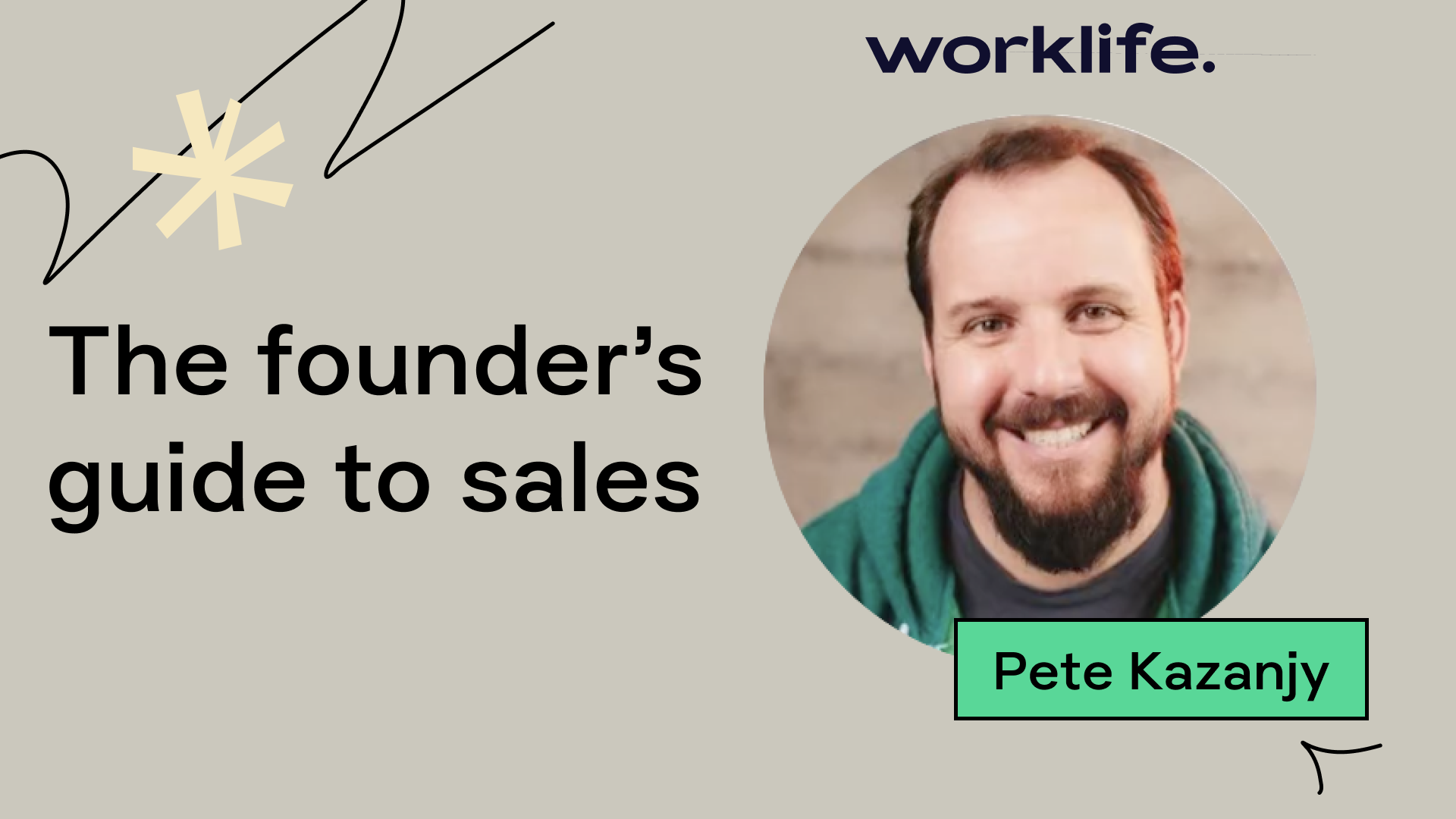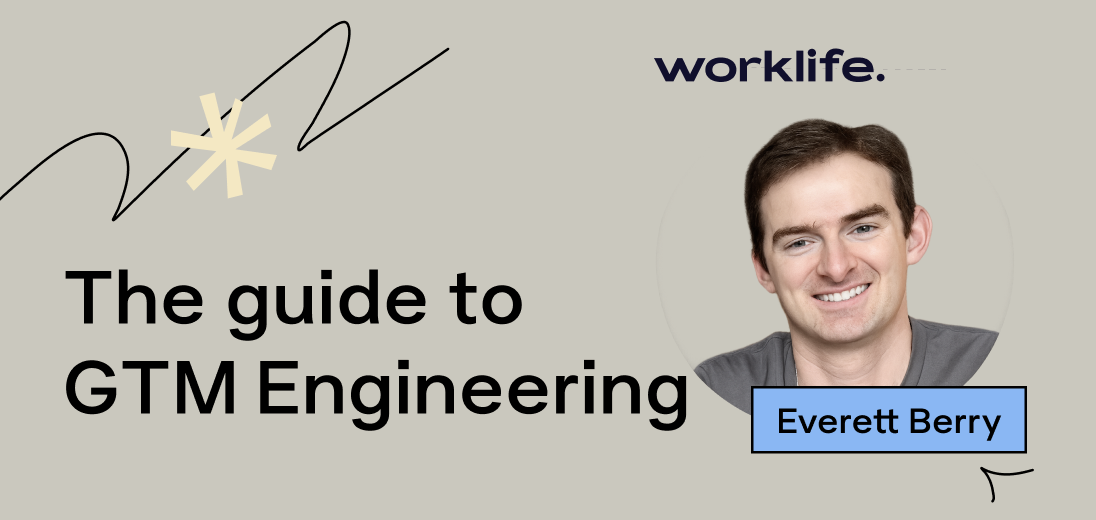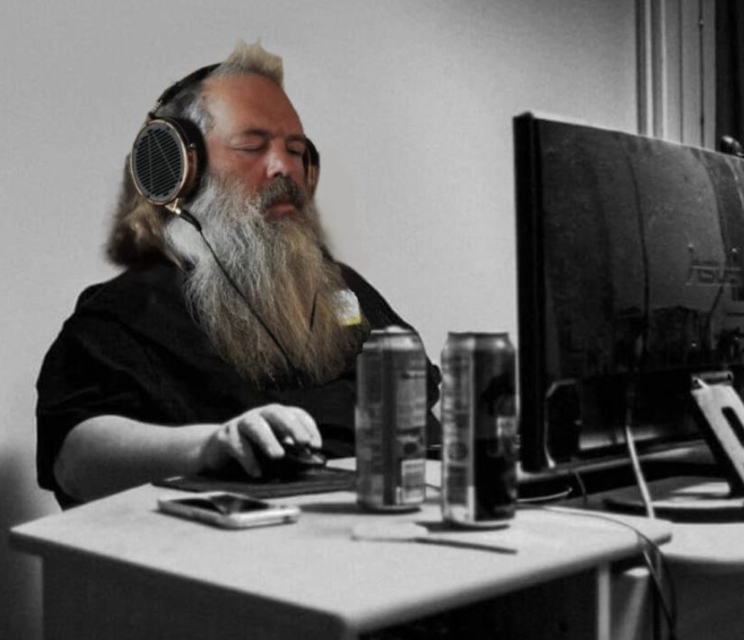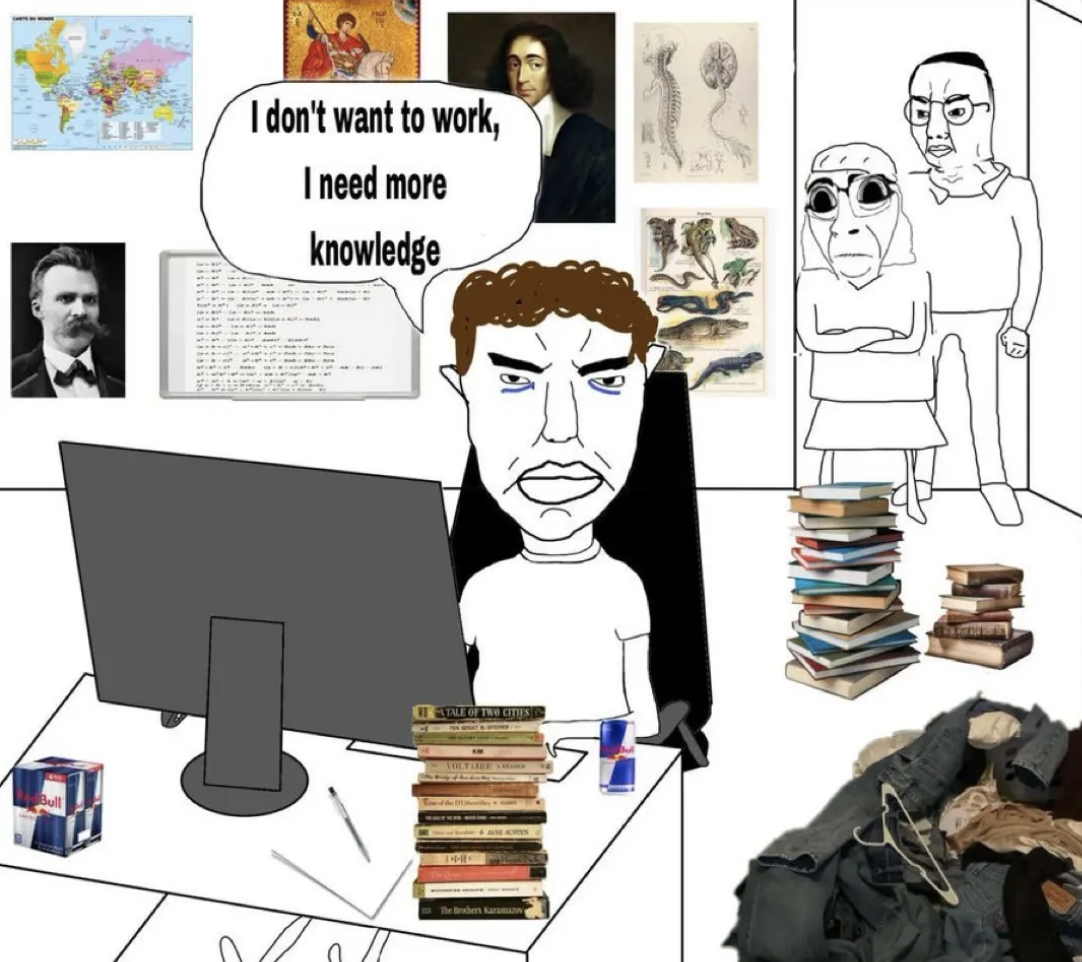We’ve heard a lot about the Great Resignation: millions of people from all types of industries have jumped ship from their day jobs to find a new role that’s a better fit for their lifestyles — often, that means working for themselves.
Even before the pandemic, I was bullish on a future where anyone, anywhere could leave a boring job to start the business of their dreams. For creatives, it may be leaving a 9 to 5 filled with meetings to selectively take on a handful of clients and have more time to actually write, design, build, and focus more on the craft vs. the corporate politics.
I founded Worklife to build and fund the tools, services, and financial products that make it easier for anyone to choose their own professional adventure.
Very early on in the pandemic, I knew the world would never return to the old, “normal” way of working.
We made the call: We were officially entering the first industrial revolution from home. Work would become more creative, flexible, and free. New builders and creators would thrive.
I’m seeing this play out more every day. The stats don’t lie. Last November alone, a record 4.5 million people left their jobs. That means 3% of workers voluntarily quit that month — an all-time high.
But the momentum was already there pre-COVID. The freelance workforce increased from 53 million to 59 million people from 2014 to 2020. That’s expected to grow: a survey from Upwork showed 20% of current employees — 10 million people — are considering freelance work.
More small businesses were started during the great resignation of 2021 than at any other point in American history. This "new American Dream" is a trend we called out in 2019.
I have spent the past two years hearing inspiring stories of people who finally took the leap to go it on their own. There’s Fiona Chan, who left her well-paying sales job to start the viral TikTok beauty brand, YouthForia.
Or my friend, comedian Alexis Gay, who left her comfortable role at Patreon to go all-in on her own podcast and comedy work.
The new ideas and new founders flooding the market are energizing. I’m particularly excited about:
- How Megan Rapinoe and re–inc are challenging the status quo
- These 7 startups making parenting a little easier
The question now is: What’s next? How will the Great Resignation reshape our workforce?

The next era will be an iteration of what we’ve been seeing. But it won’t be a fully self-employed economy.
Corporate jobs aren’t going anywhere. Instead, we’ll enter a period where people bounce back and forth between individual creative pursuits and stable company jobs, or do a little of both at the same time. We’re headed toward a future where professional and personal fulfillment are the priority — not a clear-cut career trajectory.
Here are four post-Great Resignation trends that will drive creativity, flexibility, and fulfillment.
With the Great Resignation Boom comes a Self-made Small Business Boom — With Even More Diverse Founders
2022 is already on track to be another record year for small businesses, according to projections from QuickBooks. One of the most exciting trends from last year was that women, Black Americans, and those without college degrees were starting online microbusinesses at much faster rates than in the past. Women started 57% of businesses that have opened since March 2020 compared with 48% pre-pandemic; Black Americans founded 26%, up from 15%; and Americans without college degrees founded 44% compared with 36%.
Slutty Vegan is a perfect example of a thriving Black-owned business celebrating Black culture.
This Atlanta-based empire is a cultural phenomenon. Slutty Vegan Owner Aisha "Pinky" Cole founded the vegan restaurant brand back in 2018, and since then, it’s grown to include multiple food trucks and brick-and-mortar locations. They all consistently attract lines around the block. People show up for the party atmosphere, and stay for the delicious vegan food that even carnivores crave.

The path to business success is becoming easier and more accessible, too. In the past, people only had a few routes toward launching a company. Most of these usually involved having a lot of money and/or being privileged enough to take a big risk. Now, more people are going starting small with a business before taking on more risk, much like how Slutty Vegan started as a food truck before opening a brick-and-mortar restaurant.
Platforms like Stripe, Shopify, and even Instagram have made selling online easier to test the waters before pouring everything into an idea. Then there’s CashDrop, which has taken the ease of e-commerce to the next level. CashDrop Founder Ruben Flores-Martinez came to the U.S. from Mexico as a young teen. He learned he was undocumented while applying for college and “became an entrepreneur out of necessity,” he told Worklife last year. In 2020, he launched a tool designed to be as powerful as Shopify but as simple as Venmo.

Today, CashDrop allows anyone to set up an online store and start selling in a matter of minutes, with no sign-up or sales fees. CashDrop takes the burden of risk and cost off of creative entrepreneurs, instead charging customers a 5% service fee when they check out. CashDrop powers thousands of storefronts, including food trucks, pop-ups, farmers market vendors, restaurants, hotels, cashierless storefronts, artists, influencers, and even porn stars.
“Being an entrepreneur is a luxury. Not everyone gets to wake up and throw everything away for a dream,” he said.
“You have bills, you have family. You may have a million dollar business idea but you don’t have the time or resources to go after it. I wanted to make getting started — trying something — faster and simpler for anyone.”
People Will Hop Between Freelancing and In-House Roles — Or Doing Both at the Same Time
It’s projected that in 2027, 86.5 million people will be freelancing in the U.S. (up from 58 million this year), making up slightly more than half (50.9%) of the total U.S. workforce.
At Worklife, we specialize in funding tools that help make the jump to freelance life easier. That includes:
- Webflow, which makes no-code website building beautiful and seamless
- Archie, whose mission is to get freelancers paid faster
- Pietra, which helps connect people to the right vendors to create a physical product like candles, cosmetics, or a full-blown clothing line

I regularly run into creative people who left a unfulfilling corporate job to finally make the jump to pursue a dream. Take Diego, who’s 23 and built his own Webflow business making $35,000 per month working with Silicon Valley startups like On Deck. There are countless stories like his:
- Nicole Album, who left her full time job job doing graphics for a children’s clothing brand to become a freelance illustrator
- Jackie Lam, who opted not to take a six-figure job offer and strike out on her own as a freelance writer
But there are still a lot of pain points when it comes to freelancing. Setting rates, securing business, and getting paid are all time-consuming, even if you’re using tools to make your freelance life easier. While freelancing can fuel freedom and creativity, it can also lack security and support. That’s why this trend will go both ways: I’ve also noticed long-term freelancers going back in-house and leaving their 1099 life behind to gain more security in terms of pay and benefits.

With the job market red hot, companies are doing more than ever to attract talent, from offering high salaries to extensive benefits. The result? These talented people have more time to focus on their craft full-time, without worrying about back office tasks that come with running your own business.
In addition to hopping back and forth between freelancing and company jobs, a huge swath of people will actually do both full-time work as well as side gigs.
Each year, we survey thousands of technology workers in our annual State of Worklife Survey.
Six months into the pandemic, we uncovered that 83% of people we surveyed were already or gearing up to freelance, advise, or make some extra cash on top of their full-time job.
In fact, there’s even a growing sector of folks who are taking on two full-time jobs stealthily, as reported by the Wall Street Journal. While we can’t necessarily condone that for great work-life balance, the point is: rules of the past are gone.
Internet friends become IRL friends
We’ve been stripped of a lot of human connection over the past two years, and we’re craving it more than ever. That’s why this next era will be centered on finding, creating, and maintaining community, both at work and in our personal lives.
More companies are realizing that while people are embracing remote and hybrid workplaces, they also want chances for connection. Take Cameo’s evolution.
In March 2020, the company was ready to sign a lease on a flashy, large office space, but held off to see what would happen with COVID-19. Of course, they pivoted to embrace a full WFH workplace. After vaccines arrived, though, they realized people wanted to see their co-workers and come together.

The company dedicated resources to curating epic company offsites and retreats, including “Cameopalooza.” Kenny G opened the event with a performance, Paula Abdul judged a talent show, and part of the Hamilton cast performed.
Now, they’re getting ready to open smaller office spaces that allow people to gather more regularly, especially talent-facing teams that need to have more in-person conversations to hit their individual quotas.
Outside of companies, creatives and freelancers are also seeking community. We’re seeing people who have come together in online spaces, especially Discord servers, now meeting up regularly and even opening their own physical spaces to gather.
I recently joined a $FWB co-working day at NeueHouse Hollywood where I realized something: the formal and historically-forced office may be dead, but for creatives and people starting something new, in-person gatherings are an important way to validate what they’re working on and making the right connections to help with customer development, hiring, and other aspects of building the next new thing.

With the rise of DAOs and community perks for NFT holders, the office of the future will be interest-based. Like-minded people will gather in real life based on a shared love for an artist or even an aesthetic.
Poolsuite, everyone’s favorite retro music player turned exclusive NFT club, has already built a community of artists like Diplo, startup founders, and the world’s most creative people together for in-person experiences and low-key co-working days.

People Make Money by Learning New Skills vs. Climbing Corporate Ladders
I'm increasingly optimistic that learned crafts will replace traditional careers.
If you haven't read Shop Class as Soulcraft, Matthew Crawford's work couldn't be more Worklife aligned in how we view work as not just a job, but an opportunity to find something you love doing and happen to earn money doing it.
Not only do people not want to be pigeon-holed into one area of interest, it's the number one reason 64% of people leave their job entirely.
At Worklife, we recognize not all employers have the ability to create a more exciting role for a high growth employee. We ultimately advise companies to encourage life outside of work such as starting a podcast, making art and selling it online, or whatever hobby helps you unwind and show up as your full self at work.
When I look at the most talented people I know, many have risen to the top with one craft and decide to learn another. With highly creative, ambitious, and well-networked people, there's always another mountain to climb.
It's why we see actors become directors, musicians become beauty moguls, and fashion designers start food empires (that's a fairly new one).
Humberto Leon is an interesting example of someone who had success in one industry, but jumped to another not because it would be most lucrative, but because it felt like the next right move based on his values. Leon is a self-made fashion designer, retailer, and creative director who founded fashion retailer Opening Ceremony in 2002.

He could have done anything next. But he chose to open a restaurant with his mother, sister, and brother-in-law in the middle of a pandemic to focus on serving diners dishes celebrating his Chinese-Peruvian heritage.
“We focused on creating a sense of home in our restaurant. It’s the food I was raised on and what [Asian immigrants and Asian Americans] miss because they can’t see their families. We’re being true to ourselves with authentic Chinese food that’s not Westernized and our customers, Asian or not, recognize that,” Leon told The Cut.
We'd love to hear your Great Resignation story
While I’m excited to see what people in and around tech do in the coming years, I’m even more excited about anyone, anywhere, from any background having more opportunity to take control of their lives and generate income by working for themselves. I can’t wait to watch barriers come down, and for more people to experience a better worklife.
If you'd like to share your story or contribute to Worklife, please reach out!
We'd love to hear from you if you've made a big change during the pandemic:
- Took on a second full-time tech job
- Left a boring job to start a business on Etsy, Shopify, or other platform
- Found your next job, co-founder, or freelance project on Discord
I recognize that a lot of these trends are rooted in a certain level of privilege and pertain mainly to people in creative, cultural, and tech spaces. But I also have seen people in so many other industries, from the medical community, to teaching, to food service, make the leap from jobs where they were treated poorly to ones that give them more power and financial stability.






